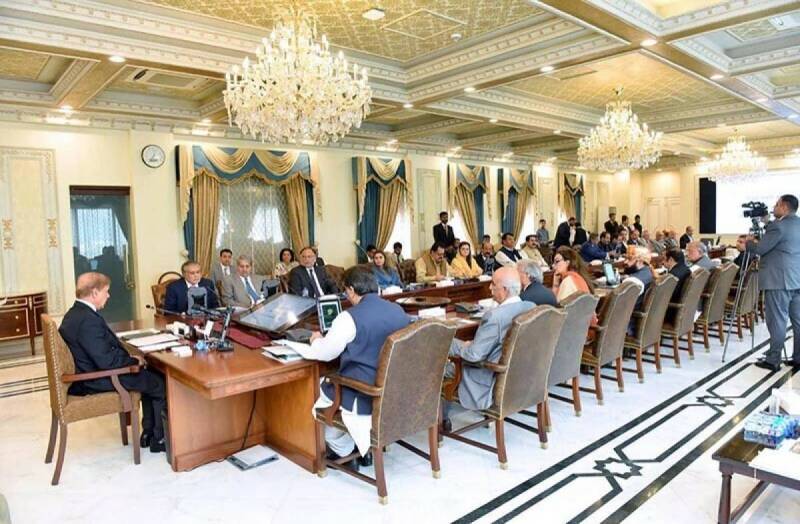Mohsin Siddiqui (Chief Reporter)
The federal government has decided to honor a recent judgment from the Gilgit-Baltistan (G-B) chief court, which prohibited the collection of federal taxes within the G-B territory. Consequently, the Federal Board of Revenue (FBR) will now collect taxes on imports from China only after these goods enter mainland Pakistan. This decision was disclosed during a briefing given to Finance Minister Muhammad Aurangzeb at the FBR Headquarters on Monday.
The meeting, chaired by Finance Minister Muhammad Aurangzeb, was attended by key officials, including the Minister of State for Finance Ali Pervez Malik and the newly appointed FBR Chairman Rashid Mahmood Langrial. During the briefing, the finance minister was informed about the new tax collection arrangement, which is in compliance with the interim judgment of the G-B court.
The G-B court, a special jurisdiction, ruled against the collection of income tax and sales tax on goods imported through the Sost Border post, a major trade route between Pakistan and China. The court’s ruling stems from a petition filed by the G-B Importers and Exporters Association, which argued that federal tax laws should not apply to the G-B region as it holds a unique legal status within Pakistan.
Despite the federal government’s efforts to seek legal relief from higher courts, they were advised by the Attorney General’s office to comply with the G-B court’s decision. This compliance underscores the government’s respect for the special status of G-B and its commitment to uphold the judiciary’s decisions.
Under the new arrangement, FBR will no longer collect taxes at the Sost Border post within G-B. Instead, tax authorities will obtain post-dated cheques from importers for the amount due. These cheques will only be cashed if the final court judgment favors the government. If the court’s final ruling remains against the government, the cheques will be returned to the importers.
This tax exemption is applicable exclusively to goods that remain within the G-B territory. However, once these imports from China cross into mainland Pakistan through Thakot, the federal government will impose all applicable taxes. This strategic adjustment ensures that tax collection is aligned with the court’s ruling while maintaining the government’s revenue stream from imports.
The G-B court’s interim order declared that the collection of income tax, sales tax, and additional sales tax on goods imported from China through the Khunjerab Pass was illegal. The ruling immediately halted the FBR and Customs from collecting these taxes within the G-B region. The decision was a significant win for the G-B Importers and Exporters Association, which had long argued that the imposition of these taxes was unjust given the region’s distinct legal status.
FBR officials acknowledged that they cannot collect sales tax and income tax within G-B as per the court’s interim orders. However, they emphasized that this exemption is confined to the G-B territory, and tax authorities have established checkpoints at crossover points to ensure that recoverable taxes are collected once goods enter the tariff area of mainland Pakistan.
During the same meeting, the FBR also briefed the finance minister about a massive Rs135 billion scam involving the import of a highly inflammable and dangerous petrol adulterant. This substance, marketed as high-quality petrol, has caused extensive damage to car engines and resulted in significant financial losses for both consumers and the national treasury.
The scandal was uncovered by Customs Intelligence, which revealed that the illegal import, clearance, and sale of Light Aliphatic Hydrocarbon Solvent—a hazardous petroleum product—were carried out in violation of the Petroleum Act of 1969 and the Petroleum Rules of 1937. This solvent was mixed with petrol, leading to widespread engine damage and a substantial loss in revenue.
In response to this scam, a seven-member fact-finding committee was constituted following intervention from the Prime Minister’s office. The committee, currently investigating the case, has been tasked with uncovering the facts, providing recommendations, and determining responsibility within seven days. The investigation is expected to reveal the full extent of the illegal activities and bring those responsible to justice.
While the investigation is ongoing, the Quetta Chamber of Commerce and Industry has disputed the allegations, claiming that there was no loss of revenue and that the substance in question is not used as an adulterant. Nevertheless, over 807 tankers carrying the solvent have been detained at the border post, and the FBR has linked their release to the issuance of an import license by the Oil and Gas Regulatory Authority (OGRA).
As the investigation continues, the government is focused on ensuring transparency and accountability. The finance minister commended the FBR team for their persistent efforts in uncovering the scam and their ongoing work to maximize revenue collection and broaden the tax base for sustained economic development.




